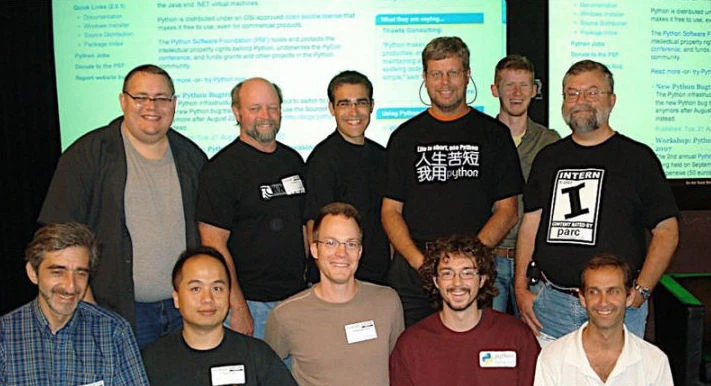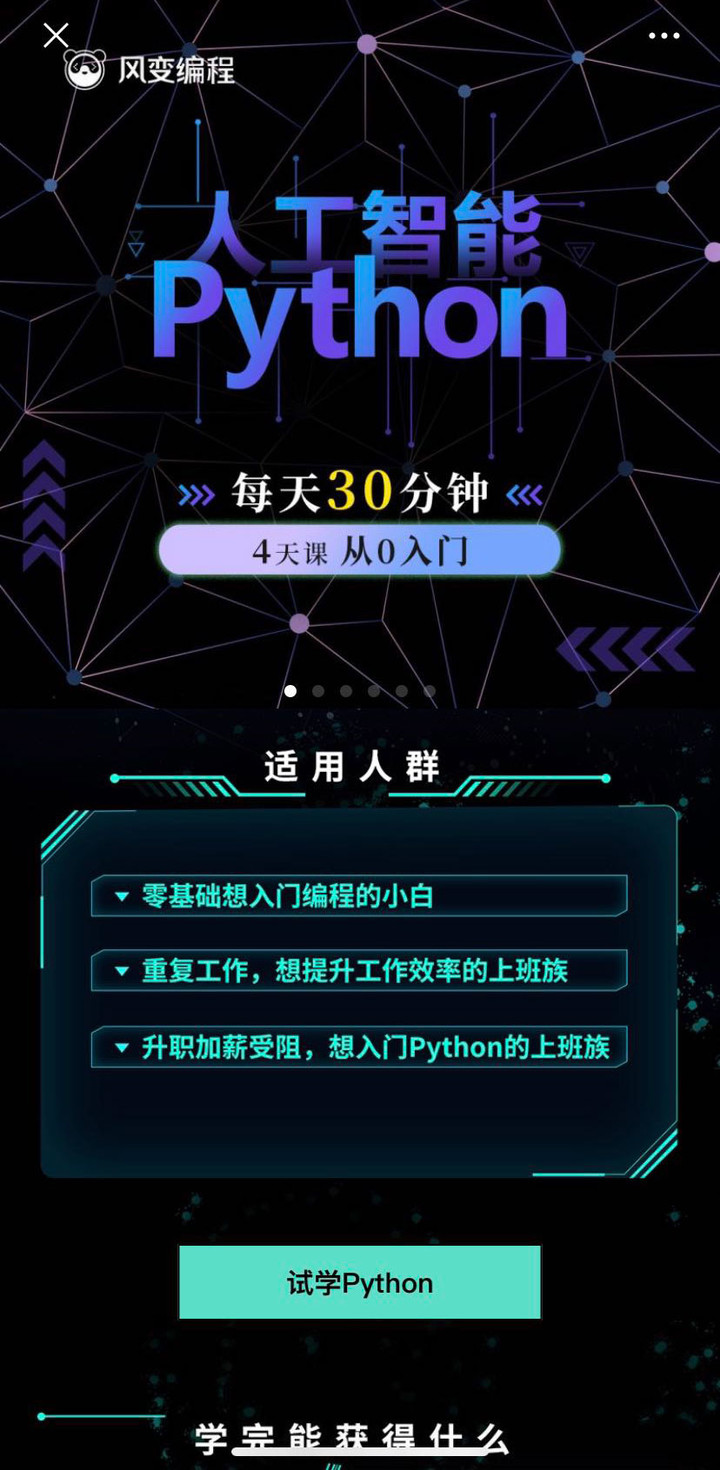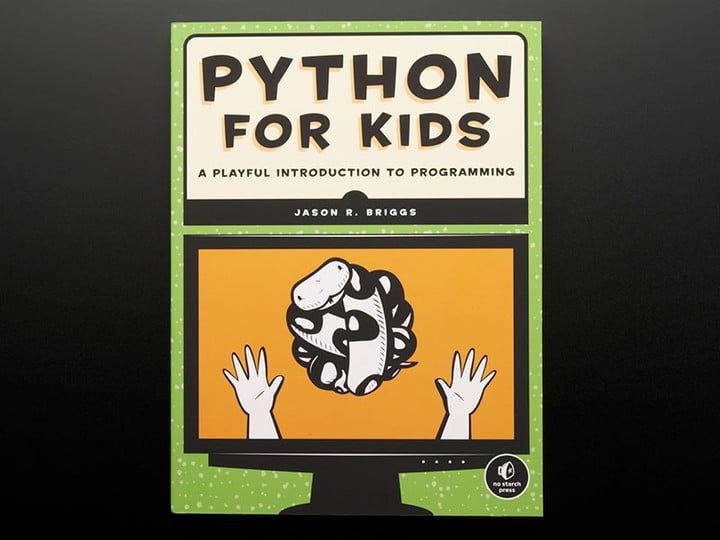Contemporary knowledge anxiety is bound to be a language called Python. The lively interaction between the “Python Boot Camp” advertisement and the comment area that appeared every few days in the circle of friends always gives people the illusion of learning Python for the whole people.

Is it an illusion? It doesn’t seem to be, after all, even real estate tycoon Pan Shiyi regards learning Python as his “life gift”. Zhejiang has already included Python in the information technology college entrance examination subjects. This trend seems to be intensifying.
I am not writing this article to ignite this anxiety, but to sincerely dismiss it.
What is Python?
It’s necessary to understand its history before figuring out whether to learn Python or not.
While Python “out of the circle” has been in the past two years, it has been around for almost 30 years. People who have had a little exposure to Python have mostly heard the phrase: Life is short and I use Python. (Famous programmer Bruce Eckel said earlier that “Life is short You need Python”) This famous quote comes from the father of Python, Guido van Rossum Many people can guess his nationality-the Netherlands.

▲ Van Rossum wears a T-shirt with the words “Life is short, I use Python” Picture from the Internet
Fan Rossum’s reason for developing Python is very willful. During Christmas 1989, in order to pass the holiday time, he decided to create a new programming language, which should be as readable and easy as ABC. Usability, and easy to extend and compile.
In 1991, the first version of the Python compiler independently developed by Van Rossum was released, and subsequent versions were collaborated by him and colleagues, but he is still the main developer and decision maker, and retired on July 12, 2018 Later, Van Rossum remains the “Benevolent Dictator For Life” of the Python community.
As for why it is called Python, it was because Van Rosum was watching the BBC comedy “Monty Python’s Flying Circus” at the time. He felt that he wanted to give his product a short, unique and slightly mysterious name, so he I used Python with the meaning of “python”.
So what’s so good about Python? If you ask the person who masters Python, the other party can list countless articles for you. The too technical stuff is not covered here, but we mentioned the simple and understandable features of Python in the previous article. The comparison chart is a glimpse, even if there is no programming foundation at all, I believe you can understand this code.

▲ Pictures from the Internet
Because Python is easy to learn and easy to understand, it is very suitable for scientists who have not studied programming to process experimental data and even develop programs. They do not care how the computer implements these operations, nor do they want to spend their energy on memory management, parallel processing, etc. In terms of problems, as long as the problem can be solved quickly and well, Python can just meet the needs, call various functions in the simplest way, and glue different languages, so many people call Python the “glue language”.
The widespread use in academia has also created the popularity of Python after the artificial intelligence boom, so artificial intelligence and Python should be considered as a cause and effect or mutual achievement.

But there is a confusing place here. Many training courses will equate Python with artificial intelligence. In fact, otherwise, artificial intelligence is a broad concept. Python only involves deep learning in artificial intelligence, such as Google’s Tensorflow and Baidu’s Feijiang are both deep learning frameworks that support Python. The next time you see an ad that teaches you 30 days of Python under the banner of AI, you can directly hack.
Life is short, I learn Python
As mentioned above, Python has a low learning threshold and a very smooth learning curve. Therefore, after its popularity, its use will no longer be limited to programmers and scientific researchers. For example, the recruitment requirements of many operating positions will be written “Familiar with Python is preferred”. It may be an exaggeration to learn Python for the whole people, but you can always find one or two who have learned baldness or mastered new skills.
Some of them have very clear goals.
“For crawlers.” The goal of a well-known social operation fan to learn Python is very practical. “I found it necessary to learn Python after joining the company, otherwise I would be too old to bother people to write crawlers.”

▲ Image from: Unsplash
A Feng, a C and Java programmer, recently taught himself Python for data mining. Compared to the self-deprecating Xiao Fan who has returned the high numbers to the university teacher, learning Python using A Feng’s words is “just a matter of syntax”. He can skillfully list the various benefits of Python: “The resources are too rich, you want to learn artificial intelligence, frameworks and libraries in a bunch of piles, so much that you don’t know which one to use.”
“It should be said that everyone uses Python, it can be said that the ecological environment determines it. Of course, you can also use other languages in the low-level and library, but you have to repeat it yourself, that is not Repeat the wheel? “A Feng concluded.
There are others who don’t expect to use it to solve practical problems by learning Python.
The original intention of our editor, Qiu, to learn Python is just to have a better understanding of artificial intelligence. There is specific knowledge of what level has been reached. “
Xiao Han, who has a similar idea as a product manager at a network company, said: “I make products in a technology-oriented industry. Learning Python is inevitable, and I do n’t always have to do it myself. Write code, but understand technical thinking.
“You can’t mention a totally differentThe need for technical logic will be mocked. If you have written the code yourself, you will know how technology understands and completes the process of a requirement. When you write product documentation, you can better tell them from a technical perspective: what am I going to do. In this way, they will be more efficient when watching and developing, and will reduce repeated understanding and communication. There is also a need to clearly understand whether technology is lying to you (your needs) or not. “After clearly explaining the reasons for learning Python, Xiao Han added:” Besides, I think it’s really cool to write code myself. “
However, there are 1,000 reasons to learn Python, and 1001 reasons to give up. It may take only one lesson to get started.
A word “difficult” can dispel countless science subjects. Although Python is relatively low in programming languages, it is not without threshold. “Syntactically speaking, it is very simple, at least much simpler than everyday languages; the difficulty lies in the objects it processes, the The abstraction of real things is a mathematical way of thinking, “said editor Qiu, who has been exposed to BASIC and HTML.
In other words, if you do n’t even learn high school functions, I am afraid you will fall into the despair of “I understand the truth, but I still do n’t know how to write it”.
“I took a Django framework class and got a server,” Sasa, who claims to be “mathematical insulator,” told me that Python is not as simple as people say, “It really dismisses me. Understand. Then I went to the B site, I really do n’t understand, why is it useful to use Python to typeset PPT tutorials? Is n’t it good for me to use Office? Why should I learn? ”This series of three questions asked me, but I had nothing to say Say.
Even if your math is good, it’s hard to guarantee that you still have energy, perseverance and boring tutorials after work every day. Xiao Han, who was telling me before, felt that it was cool to write code, and told me that he temporarily gave up, “Seeing half, I’ve been too busy lately, and no time.”
I hope that we have read 1/5 of the introductory textbook, and editor Qiu can stick to it.
Summary
Some of the learners we interviewed are more or less related to the Internet or technology. If there is no need for data analysis, crawlers, etc. in life, do you want to learn to look at the ethereal “editing thinking” What about Python?

▲ Picture from: Adafruit
Some people say that Python is now very much like English more than ten years ago. The training courses that have sprung up, the “basic skills that future talents must master”, and the anxiety picked up from dolls are exactly the same as those years ago Even the selling points are exactly the same: extra points for exams, promotion and salary increases.
But this is only an appearance. If we look at it from the actual meaning or future prospects, I think Python should be regarded as the computer operation skill of the year, that is, whether or not a computer will be used. Nowadays, computer processing documents, editing videos, surfing the Internet, watching videos, etc. are what we are accustomed to. You don’t need to understand the working principle of computers, and you can apply your own knowledge with the help of computers. In the future, Python may play a similar role. Role and become an infrastructure.
In short, there is no need to deify Python too much. Of course, there is no harm in adding another skill. No, it may not be abandoned by the times. But if you learn Python, you can change your life as the training course advertises. Then it ’s pure. I think too much.
The picture from: TechRepublic < / a>